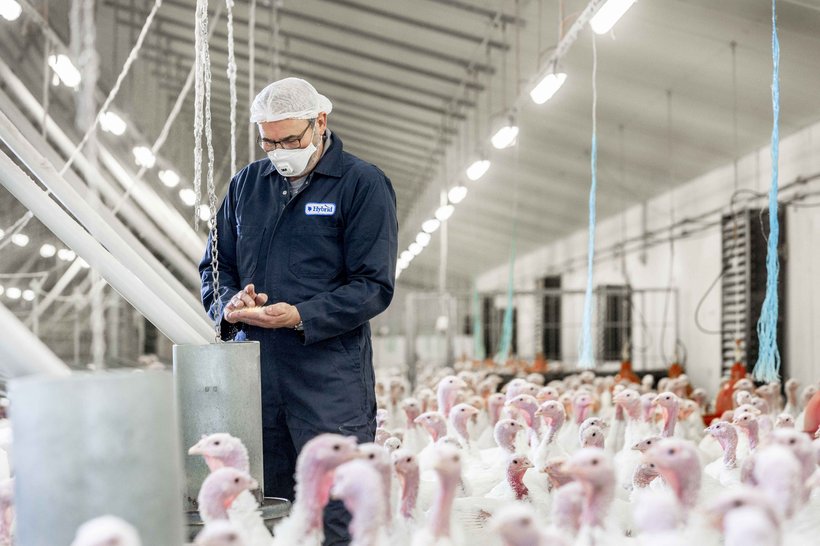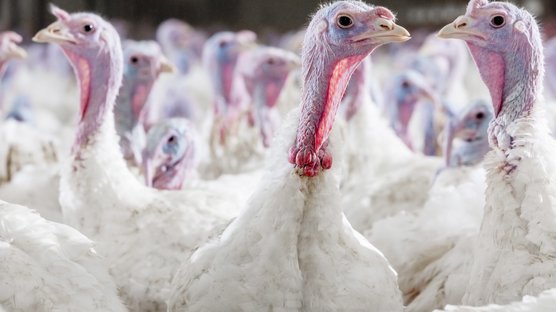
Published on May 15, 2018
Three common turkey diet deficiencies
When a nutritionist is brought in to evaluate the performance of a flock, loss of appetite and lack of growth are common symptoms that something is missing from the turkeys’ diet.
Production managers can often determine that something is “not right” with their flock, but they are uncertain what feed nutrients could be causing this. There are a number of vitamins and trace minerals that are important to consider when solving flock problems in relation to feed. Vitamin D3, Vitamin E, and Niacin are three important nutrients to consider in turkey production.
Vitamin D3
What role does Vitamin D3 play in good turkey health?
Vitamin D3 is responsible for calcium and phosphorus absorption and for strong bones and eggshells.
What are some common signs that Vitamin D3 is deficient?
As you would expect with a deficient level of calcium and phosphorus, breeder hens that do not get enough Vitamin D3 show decreased egg lay numbers and the eggs that are laid do not have enough calcification for a strong shell.
Commercial turkeys with Vitamin D3 deficiency have less bone mineral content, which can lead to instances of curved and brittle bones as well as an enlargement of bone epiphyses (the rounded end of a long bone).
Vitamin E
What role does Vitamin E play in good turkey health?
Vitamin E is an antioxidant and is important for proper immune and nervous system function.
What are some common signs that Vitamin E is deficient?
Vitamin E deficiency in breeder hens is known to reduce hatchability in turkey eggs. In addition you may see impaired muscle function and weakness. Turkeys deficient in Vitamin E may also experience a high incidence of eye irritation and infection. Male breeders may show testicular degeneration.
Studies have shown that a good level of Vitamin E in a turkey’s system improves immune response and reduces the chance of mortality when faced with an E. coli challenge.
Niacin
What role does Niacin play in good turkey health?
Niacin is integral in the metabolism of carbohydrates, lipids and amino acids.
What are some common signs that niacin is deficient?
Niacin deficiency causes loss of appetite, decreased growth (including reduced feather growth), general weakness and diarrhea. More severe symptoms of deficiency include a severe bowing of the legs, enlargement of the hock joint (perosis) and impaired neural function.
In summary...
If you suspect a nutritional deficiency in your flock, the best course of action is to consult a nutritionist to evaluate how your turkey’s feed may be affecting health and performance.
Visit the nutrition section of our resources page if you want to learn more about troubleshooting nutritional issues, ingredient formulation, and nutrition guidelines for Hybrid Turkeys' commercial and parent stock turkeys.



